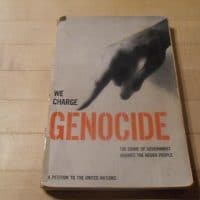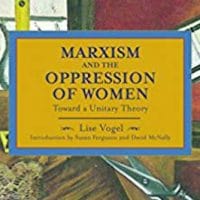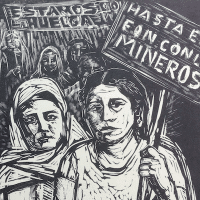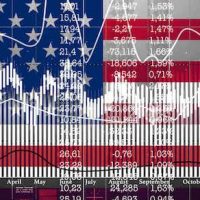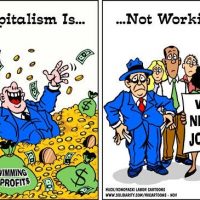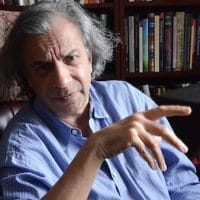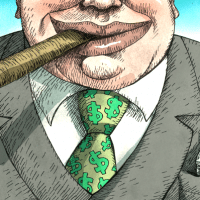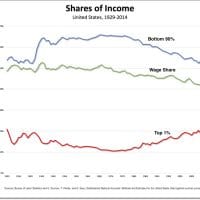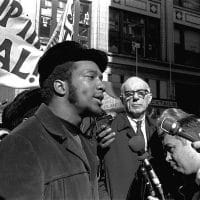-
Marc Lamont Hill and the Legacy of Punishing Black Internationalists
Hill’s bold statement to the UN is part of the internationalist Black radical tradition, exemplified by Paul Robeson, the Black Panther Party, and today’s Black Lives Matter movement.
-
The Nobel Prize for climate catastrophe
The economist William Nordhaus will receive his profession’s highest honor for research on global warming that’s been hugely influential—and entirely misguided.
-
Alienation and Freedom
For academics working on Frantz Fanon Alienation and Freedom is no less than a gift. With the publication of this book we finally have the complete available works of Fanon in English. Aptly divided into neat sections – Theatre, Psychiatric Writings, Political Writings, Publishing Fanon, Frantz Fanon’s Library and Life.
-
Young readers of Marx: BICENTENARY OF MARX’S BIRTH
The year of 2018 marked 200 years of Karl Marx’s birth anniversary. On this occasion, teachers and students of the department of English and Humanities at University of Liberal Arts Bangladesh organised a two-day international conference showcasing the ways young scholars have engaged with Marx’s body of work. Nasir Uz Zaman reports from the event.
-
Climate’s last stand: why Extinction Rebellion protesters are breaking the law (commentary)
Even if we cut emissions by 3.5 percent a year after 2020, we’ll hit 4 degrees Celsius warming by the end of this century. Just let that sink in for a minute. When babies born now are in their 80s, there could be no human civilization left to speak of.
-
A Marxist theory of women’s oppression
In the new introduction to Lise Vogel’s Marxism and the Oppression of Women: Toward a Unitary Theory, Susan Ferguson and David McNally comment on the book’s “curious life-history.” They describe it, quite correctly, as a book that has lived largely in obscurity in spite of its innovative approach to the question of Marxism and women’s liberation and its enormous, though largely neglected, contribution to this important topic.
-
This economic policy has been a disaster, a calamity for the country’s public life
As AMLO begins his presidential term in Mexico, he has been confronted by years of neoliberal policies, policies crafted by institutions like the IMF and the World Bank, who praised the selling off of Mexico’s assets as a model. When protestors contest this agenda—as they recently did at the G20 meeting in Buenos Aires—, the reply from leaders comes written in tear gas. Meanwhile, tens of thousands of farmers and thousands more of those who stood with them marched across Delhi to demand a parliamentary session to address the agrarian crisis.
-
Boots Riley: ‘I’m putting forward ideas about how we can change things’
Sorry to Bother You pairs a righteous political fury with surrealist flights of fancy. Writer-director Boots Riley explains how he came up with 2018’s wildest comedy.
-
The U.S. economy: monopolized product markets and precarious work
Most economists and politicians sing the praises of competition. It is supposed to keep firms on their toes for the benefit of consumers and workers. Well, competition is certainly alive and well in the U.S., but the results are far from positive for working people.
-
Contemporary capitalism and the world of work
The most significant feature of contemporary capitalism which is of relevance to the world of work is its inability to provide work to a substantial proportion of persons looking for it.
-
Yellow Vests rise against neo-liberal ‘King’ Macron
For centuries, the “left” hoped popular movements would lead to changes for the better. Today, many leftists seem terrified of popular movements for change, convinced “populism” must lead to “fascism.” But it needn’t be so, says Diana Johnstone.
-
Congresswoman-elect Rashida Tlaib to lead delegation to Palestine
Tlaid , one of two Muslim women who are the first to be elected to U.S. Congress, says she supports BDS and intends to shift perspective on the Palestinian-Israel conflict.
-
Analysis: fossil-fuel emissions in 2018 increasing at fastest rate for seven years
Hopes that global CO2 emissions might be nearing a peak have been dashed by preliminary data showing that output from fossil fuels and industry will grow by around 2.7% in 2018, the largest increase in seven years.
-
‘Civility’ is for white people
Even if the truth is unsavory, the dead deserve our condolences and respect. We must be civil. Especially if they are white.
-
Gandhi, Marx & the ideal of an ‘unalienated life’
In this in-depth interview, Akeel Bilgrami speaks on a wide range of issues of intellectual relevance and contemporary importance such as the relationship between Gandhi and Marx, issues of modernity, Chomsky’s philosophy, personal influences, academic philosophy in India, secularism, caste and current politics in India, Hindutva politics and the criminal threat of the present government, the Hindutva political challenge and ways of resistance, and the importance of Left politics.
-
Scientists warn the UN of capitalism’s imminent demise
Capitalism as we know it is over. So suggests a new report commissioned by a group of scientists appointed by the UN Secretary-General. The main reason? We’re transitioning rapidly to a radically different global economy, due to our increasingly unsustainable exploitation of the planet’s environmental resources.
-
Tale of two depressions
Mainstream economists continue to discuss the two great crises of capitalism during the past century just like the pillars of society performed in the brothel—a “house of infinite mirrors and theaters”—in Jean Genet’s The Balcony.
-
Fred Hampton’s death is just one example of the Government’s covert disruption of Black Lives
The police lied and said that when they knocked on the door and announced themselves, the Panthers immediately began shooting at them. This was later proven to be a lie.
-
‘Marx’s writing more relevant today than ever’
THE German political economist Wolfgang Streeck is one of the world’s leading critics of neoliberal capitalism. He received international attention for his essay “How will capitalism end?” written in 2014 for the New Left Review. The much-discussed essay was later republished in book form.
-
The ignored legacy of George H.W. Bush: war crimes, racism, and obstruction of justice
THE TRIBUTES TO former President George H.W. Bush, who died on Friday aged 94, have been pouring in from all sides of the political spectrum.

